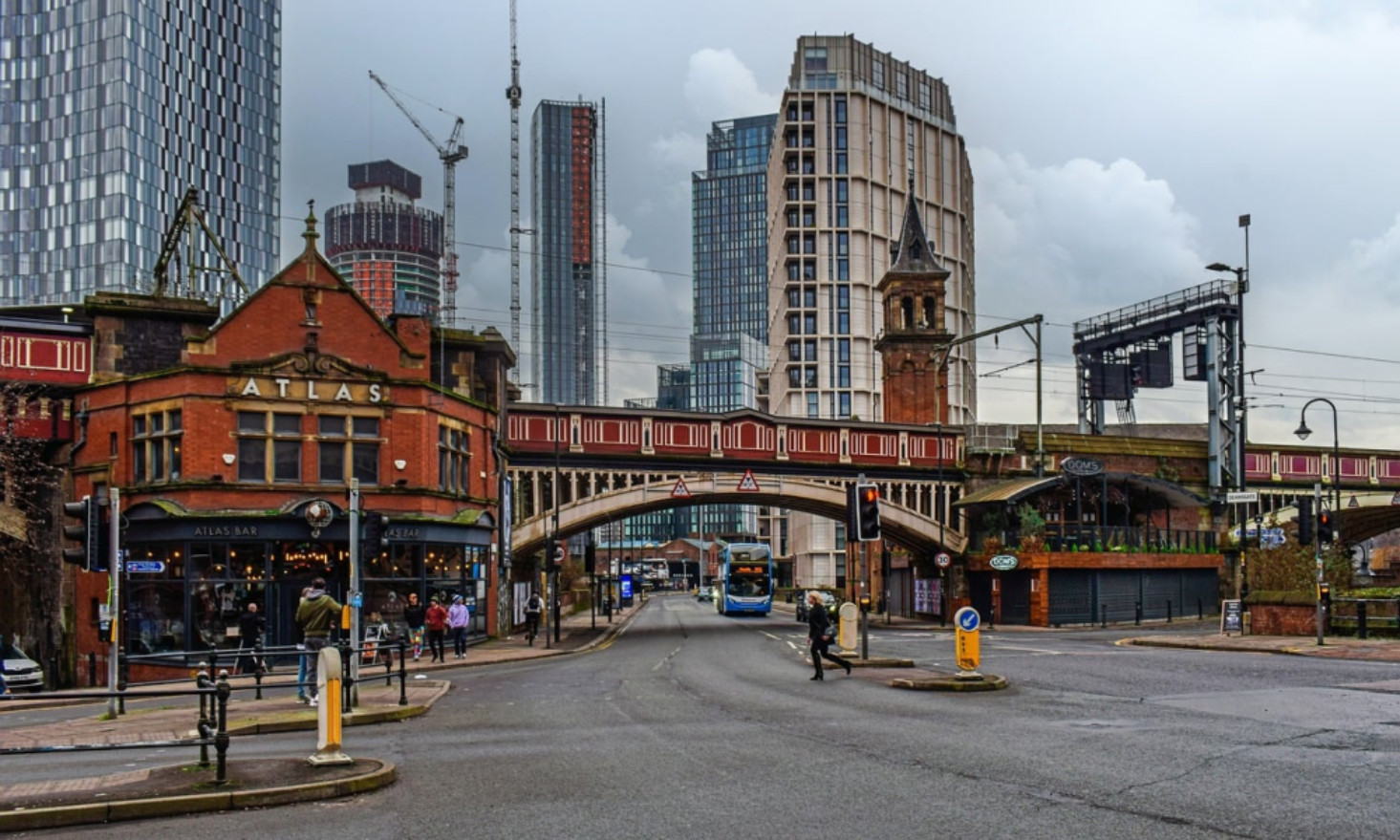
The Best Manchester Attractions for History Buffs
The vibrant city of Manchester in the UK is steeped in history and offers a plethora of attractions for history buffs to explore. From iconic landmarks to fascinating museums, the city showcases its rich historical heritage.
Manchester has a remarkable history that spans across key historical periods. From its origins as a Roman settlement to its importance during the Industrial Revolution, Manchester has witnessed significant events that have shaped the city’s identity. Noteworthy historical figures have also left their mark on Manchester, such as Friedrich Engels, renowned for his collaboration with Karl Marx.
The Industrial Revolution had a profound impact on Manchester, transforming it into a center of manufacturing and industry. The city played a crucial role in innovations, particularly in textile production. Manchester has a prominent place in the Suffrage Movement, with leaders like Emmeline Pankhurst and her daughters pioneering the fight for women’s rights and suffrage.
Manchester has been the setting for various famous events, including the Peterloo Massacre, which occurred during a peaceful protest for political reform, and the infamous Manchester Ship Canal, symbolizing the city’s maritime history.
By exploring these Manchester attractions for history buffs and delving into the city’s captivating history, visitors can gain a deeper understanding of the cultural and historical significance that Manchester holds.
The Manchester Town Hall
The Manchester Town Hall is a significant landmark situated in Manchester, UK. It displays Victorian Gothic architecture and acts as the headquarters of the Manchester City Council.
Built in 1877, the structure is constructed from sandstone, giving it a majestic appearance. The Manchester Town Hall is renowned for its remarkable features, including the Great Hall adorned with splendid murals and stained glass windows.
This historic building is accessible to the public, allowing visitors to explore and learn about the city’s history through exhibitions and guided tours. Inside, you will find the Lord Mayor’s Parlour, which is used for official ceremonies and events.
The clock tower accommodates the Great Abel bell, weighing 8 tons, named after Sir William Abel, a former Lord Mayor of Manchester. The Manchester Town Hall holds a vital role in city governance, symbolising civic pride. It often serves as a backdrop for significant events and celebrations in Manchester.
Visiting the Manchester Town Hall provides an excellent opportunity to immerse oneself in the city’s history and appreciate its beauty. Whether you are interested in history, architecture, or simply wish to experience the grandeur of Manchester’s notable landmarks, the Manchester Town Hall is a destination that should not be missed.
Manchester Cathedral
Manchester Cathedral, which is located in the centre of the city, is a historic and iconic landmark.
The cathedral dates back to the 15th century and features magnificent Gothic architecture. Visitors have the opportunity to explore the impressive interior adorned with exquisite stained glass windows and vaulted ceilings. A notable aspect of a trip to Manchester Cathedral is experiencing the performances by the esteemed choir.
The esteemed choir captivates visitors with their divine voices, enhanced by the acoustics of the cathedral. The cathedral is home to significant historical artifacts and memorials, such as the Regiment Chapel and the Chapter House. Visitors can enjoy the peaceful atmosphere of the cathedral gardens, which provide a tranquil retreat from the bustling city streets.
Whether you are a history enthusiast or seeking tranquility, a visit to Manchester Cathedral is essential. Immerse yourself in its profound history and architectural splendor.
The Museum of Science and Industry
The Museum of Science and Industry in Manchester is an essential destination for those who have a deep interest in history. It offers interactive displays, exhibits on the Industrial Revolution, a collection of transportation objects, science galleries, and special exhibitions.
The interactive displays allow visitors to actively engage with scientific principles and historical artifacts, such as operating steam engines and exploring electricity. The exhibits on textile manufacturing, steam power, and machinery highlight Manchester’s significant role in shaping the modern world.
The museum houses a collection of vehicles that showcase the evolution of transportation, including locomotives, cars, and planes. The science galleries delve into various disciplines such as biology, chemistry, and physics, providing a hands-on and immersive learning experience.
Special exhibitions focus on specific topics or present unique artifacts, thereby enhancing the understanding of historical events or scientific advancements.
The Museum of Science and Industry offers a valuable and educational experience for history enthusiasts and those who have a passion for science.
The John Rylands Library
The John Rylands Library, located in Manchester, United Kingdom, is a popular destination for individuals who have a passion for history. It was built towards the end of the 19th century and showcases impressive Gothic architecture. Enriqueta Rylands established the library as a tribute to her late husband, John Rylands.
The library houses a vast collection of rare books, manuscripts, and archives. It contains over 1.4 million books and 250,000 manuscripts, covering various subjects such as literature, history, theology, and science.
Visitors have the opportunity to explore the exhibitions and galleries, which offer a glimpse into the past. They can closely examine historical documents, including the Gutenberg Bible, one of the earliest books printed using movable type.
In addition to its historical significance, the library provides a peaceful environment for study and research. Scholars and researchers from around the world visit the library to access its valuable resources.
To truly appreciate the magnificence of the John Rylands Library, guided tours are available. Knowledgeable tour guides provide informative details and bring the history of the library to life.
For history enthusiasts, a visit to the John Rylands Library is a must. It offers a rich and immersive experience where visitors can connect with the past and explore the wonders of literature and knowledge.
The People’s History Museum
The People’s History Museum in Manchester is an essential destination for those who have a passion for history. It showcases the struggles faced by the working class in order to improve their living and working conditions. The exhibits provide insight into the social and political history of the region.
The interactive displays within the museum engage visitors in the stories. These exhibits allow visitors to experience the challenges encountered by the working class and understand the significance of the movements that fought for their rights.
The museum also houses a vast collection of artifacts, photographs, and documents that highlight important events and noteworthy individuals throughout history. Each exhibit presents an overview of the hardships and achievements of ordinary people, from the women’s suffrage movement to the fight for workers’ rights.
A visit to the People’s History Museum is both educational and thought-provoking. It encourages reflection on societal progress and emphasizes the importance of collective action in shaping our present world.
Whether you are a history enthusiast or have a curiosity about the untold stories of the working class, the People’s History Museum offers a comprehensive and immersive experience. It is a valuable resource for anyone seeking to broaden their understanding of Manchester’s social history and the individuals who battled for change.
Quarry Bank Mill
Quarry Bank Mill is a historical location in Manchester, United Kingdom that played a significant role in the Industrial Revolution. It was established in 1784 by Samuel Greg and quickly became a centre of innovation and industry. The mill served as a cotton spinning and weaving mill, making use of the most up-to-date machinery available at the time.
It was powered by a water wheel and had its own steam engine, making it a focal point of industrial activity.
Today, Quarry Bank Mill is a popular attraction for tourists where they can explore the original machinery and learn about the working conditions of the mill workers. Guided tours provide insights into the daily lives and challenges faced by the workers, as well as the impact of the Industrial Revolution on society.
Interactive exhibitions display the technological advancements and social changes brought about by the cotton industry.
The mill is surrounded by gardens, woodland, and a river, offering visitors a peaceful environment to explore. Educational programmes are also available for schools and groups, providing a practical learning experience about the Industrial Revolution. Visiting Quarry Bank Mill enables individuals to appreciate the rich history and heritage of Manchester’s industrial past and gain an understanding of the profound changes brought about by the Industrial Revolution.
The Imperial War Museum North
The Imperial War Museum North in Manchester is a must-visit for history enthusiasts. Situated in Trafford, this museum provides a distinct perspective on the impact of war on society. The museum showcases artifacts, exhibitions, and interactive displays that bring war stories to life. It engages visitors in understanding the intricacies and consequences of conflicts.
Visitors at the Imperial War Museum North can explore exhibits covering various aspects of war history, including World War I and II, the Holocaust, and more recent conflicts. The museum aims to educate about the human suffering and sacrifices during times of war. One notable feature of the museum is its iconic building, designed by architect Daniel Libeskind. Its striking structure resembles a shattered globe, symbolizing the impact of war.
The building enhances the immersive museum experience. For a deeper understanding of war history, the Imperial War Museum North offers guided tours and educational programs. These resources enrich the learning experience and provide valuable insights. Whether you are a history enthusiast or simply curious, a visit to the Imperial War Museum North is enlightening and thought-provoking.
It offers a unique opportunity to delve into the realities of war and appreciate the sacrifices made.
The Manchester Museum
The Manchester Museum is an esteemed attraction for history enthusiasts in Manchester. Being one of the largest university museums in the UK, it offers exhibitions that present the abundant history and cultural heritage of Manchester and beyond.
The collections at The Manchester Museum encompass over four million objects that cover archaeology, anthropology, and natural history. Visitors have the opportunity to explore history, ranging from ancient civilizations to contemporary societies.
A notable feature of The Manchester Museum is the Egyptology collection, which holds a variety of artifacts from ancient Egypt. From mummies to jewellery, this collection provides a glimpse into the daily life and beliefs of the ancient Egyptians.
Another noteworthy section of the museum is the Living Worlds gallery, where visitors can learn about the diversity of life on Earth. Here, one can marvel at taxidermy specimens, discover different habitats, and gain a deeper understanding of the natural world.
The Manchester Museum also provides interactive activities and workshops, creating an engaging and educational experience for visitors of all ages. Visitors can handle objects and take part in scientific experiments to delve deeper into the subjects on display.
One of the most intriguing objects in The Manchester Museum is the statue of the Egyptian goddess Sekhmet. This sculpture, which is over 3,000 years old, is said to possess a mysterious curse. While skeptics dismiss the curse as superstition, reports of strange occurrences and unexplained accidents surrounding the statue contribute to its eerie and unforgettable experience at The Manchester Museum.
Chetham’s Library
Chetham’s Library is the oldest public library in the English-speaking world. It was established in 1653 and holds an extensive collection of books, manuscripts, and archives. With more than 100,000 volumes, the library covers various subjects including theology, mathematics, science, and literature. Visitors have the opportunity to explore rare books from different centuries and learn about the rich history of written works.
A notable feature of Chetham’s Library is its Reading Room. This beautiful space has walls paneled with oak and windows adorned with stained glass, creating a serene environment for reading and research. It offers a unique chance to experience the ambiance of a historical library.
The library also has intriguing stories associated with prominent individuals. For instance, Karl Marx and Friedrich Engels worked at the library while they were in Manchester, and their annotations can still be found in some of the books.
Chetham’s Library provides guided tours and educational events to delve further into its history. It showcases the significance of preserving our intellectual heritage.
In 2003, a doctoral student discovered a hidden compartment within one of the old bookshelves. Inside, he found a priceless manuscript from the 14th century. This manuscript contained a previously unknown version of a famous medieval text, offering new insights into history. This remarkable discovery further cemented the library’s reputation as a treasure trove of historical artifacts.
The Pankhurst Centre
The Pankhurst Centre in Manchester, UK is an important historical site with great significance for the suffragette movement and women’s rights. It was the former home of Emmeline Pankhurst and her daughters Sylvia and Christabel, who were prominent leaders in the suffragette movement. Now a museum and heritage centre, it preserves the memory and legacy of the Pankhurst family.
Visitors to the Pankhurst Centre can explore the rooms where the Pankhursts lived and learn about their groundbreaking work for gender equality. The museum houses artefacts, photographs, and documents that chronicle the history of the suffragette movement and the struggles women faced in their fight for the right to vote.
The Pankhurst Centre offers guided tours led by knowledgeable staff, providing a deeper understanding of the heroic efforts made by the Pankhursts and their fellow suffragettes. It is an ideal destination for history buffs, feminists, and anyone interested in learning about the women’s rights movement.
In addition to its historical significance, the Pankhurst Centre cultivates social and political awareness. Through events, workshops, and exhibitions, it inspires and empowers individuals to continue fighting for gender equality.
The Pankhurst Centre serves as a powerful reminder of the impact one family and their supporters can have on society. It is a beacon of hope and inspiration for future generations, showing the progress made and the work still needed for gender equality. History demonstrates that change is possible, and the Pankhurst Centre stands as a testament to that truth.
Manchester Attractions for History Buffs: The History of Manchester
Manchester, a city in the UK, possesses a substantial history. The History of Manchester served as a crucial Roman settlement, playing a strategic role as a key fort during the Roman conquest of Britannia. Following the departure of the Romans, Manchester experienced a period of decline but later transformed into a market town during the Middle Ages.
Throughout the era of the Industrial Revolution, The History of Manchester flourished as a prominent centre for textile manufacturing. It boasted numerous mills and factories, which sparked advancements in technology and infrastructure, propelling it to become an industrial powerhouse.
The History of Manchester also played a significant part in social and political movements. The Peterloo Massacre in 1819 shed light on the struggles of workers in their pursuit of political representation. The city played a pivotal role in the fight for women’s suffrage, with groups like the Manchester Suffragettes leading the charge.
Presently, The History of Manchester thrives as a vibrant city that embraces both its industrial heritage and modern aspirations. It showcases architectural landmarks such as the Manchester Town Hall and the Manchester Cathedral. Museums like the Museum of Science and Industry showcase The History of Manchester’s industrial achievements.
The history of Manchester demonstrates its resilience and adaptability. From its Roman origins to the Industrial Revolution, The History of Manchester has consistently evolved. Understanding and appreciating The History of Manchester is crucial to fully experiencing and appreciating all that the city has to offer.



